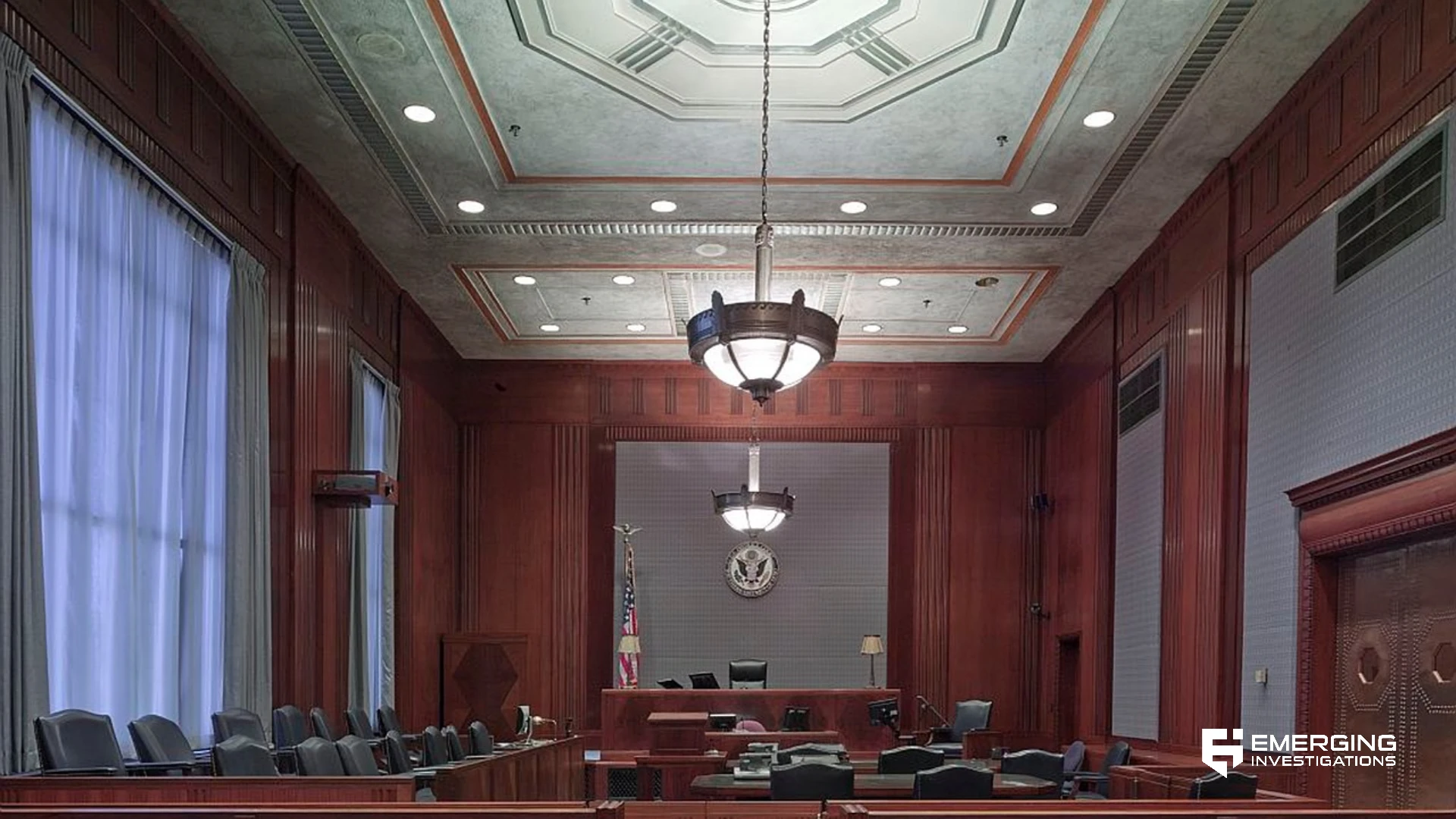Introduction: Why Admissibility Matters
When people hire a private investigator, they usually want one thing: evidence that can stand up in court. But here’s the big question many clients ask: is private investigator evidence admissible in court?
It’s easy to assume that because a PI is licensed and experienced, everything they collect will automatically help your legal case. Others believe the opposite—that PI evidence isn’t worth much in a courtroom. The reality lies somewhere in between.
In this article, we’ll break down exactly when private investigator evidence is admissible in court, when it’s not, and how to ensure your investigator’s findings can withstand legal scrutiny.
What Kind of Evidence Do Private Investigators Collect?
To answer “is private investigator evidence admissible in court,” we first need to understand what type of evidence PIs can legally collect. Typical categories include:
Surveillance footage: Time-stamped videos or photographs documenting behavior and activities.
Witness interviews: Statements from individuals with relevant knowledge.
Public record searches: Property deeds, marriage licenses, criminal histories, or financial filings.
Background checks: Employment, education, and asset verification.
Digital footprints: Public social media activity or online presence, within legal limits.
The strength of PI evidence lies in its factual nature. A private investigator doesn’t interpret the law or make rulings—they gather information that attorneys and courts can evaluate. Typical categories include: Surveillance (photos, videos), Background checks, Interviews and statements, Financial records analysis, Digital forensics, Public records searches.
How U.S. Courts Decide What Evidence Is Admissible
The key to answering “is private investigator evidence admissible in court” is understanding the legal standards that apply to all evidence, no matter the source. In the U.S., courts use four guiding principles:
Relevance – Does the evidence help prove or disprove an important fact in the case?
Authenticity – Can the evidence be verified as genuine?
Reliability – Was the evidence collected in a credible, trustworthy way?
Legality – Was the evidence obtained without violating the law or someone’s rights?
Even if private investigator evidence seems persuasive, it won’t be admissible in court if it fails these standards.
When Private Investigator Evidence Becomes Inadmissible
A huge part of answering “is private investigator evidence admissible in court” comes down to what PIs cannot do. Courts reject evidence obtained through illegal or unethical methods. Examples include:
Trespassing: Entering private property without consent to capture video or photos.
Illegal recordings: Recording private conversations without proper consent (varies by state).
GPS tracking without authorization: Placing trackers on vehicles without legal permission.
Hacking accounts: Accessing emails, phones, or databases without consent.
This is where the principle known as the “fruit of the poisonous tree” applies: if evidence is gathered illegally, the court often throws it out—even if it reveals the truth.
Pro Tip: To make sure private investigator evidence is admissible in court, always hire a licensed professional who understands state and federal privacy laws.
You can check the licensing of a private investigator in Florida here: Florida Department of Agriculture and Consumer Services
Chain of Custody and Documentation: The Key to Admissibility
Even legally obtained evidence can be questioned if it isn’t properly documented. Courts want assurance that PI evidence hasn’t been altered or tampered with.
That’s why professional investigators maintain a clear chain of custody. This includes:
Time-stamped photos and video recordings
Detailed written reports documenting the date, time, and method of collection
Secure storage systems to protect digital and physical files
Metadata and geotags when available
By maintaining airtight documentation, investigators ensure that private investigator evidence is admissible in court and can survive challenges from opposing counsel.
Testimony: The Investigator Behind the Evidence
Another key factor in whether private investigator evidence is admissible in court is the PI’s ability to testify. Judges and juries don’t just review evidence in isolation—they want to hear from the professional who collected it.
A PI’s courtroom credibility is built on:
Licensing and qualifications (proving they are legally authorized).
Experience and professionalism in investigative work.
Objectivity and impartial reporting.
Methodology consistent with legal standards.
When a PI testifies confidently and explains how they followed the law, the evidence is far more likely to be deemed admissible in court.
Common Scenarios Where PI Evidence Is Used in Court
So, in practice, is private investigator evidence admissible in court? Absolutely—when handled correctly. Here are real-world examples:
1. Family Law Cases
Divorce proceedings: Surveillance showing infidelity or hidden financial activity.
Child custody disputes: Documentation of unsafe living conditions, substance abuse, or neglect. Courts often rely heavily on PI evidence when deciding custody or alimony.
2. Insurance Fraud and Personal Injury
Claimants exaggerating or fabricating injuries.
PIs documenting activities inconsistent with medical claims. This type of evidence helps insurers and employers prevent fraud.
3. Business and Corporate Litigation
Proving employee theft or misconduct.
Uncovering corporate espionage.
Conducting due diligence for mergers or partnerships.
In all these cases, private investigator evidence is admissible in court when collected lawfully and documented thoroughly.
Practical Steps to Ensure PI Evidence Stands Up in Court
Clients often ask, “How can I make sure my investigator’s findings will actually help me?” The answer comes down to preparation.
1. Work With an Attorney First
Before hiring a PI, consult your attorney. They can clarify what type of evidence is most useful and ensure the investigation supports your legal strategy.
2. Not all investigators are equal.
Confirm licensing, experience, and reputation before you trust someone with your case. Hire Licensed Investigators Only
Not all investigators are equal. Confirm licensing, experience, and reputation before you trust someone with your case.
3. Define the Scope of the Investigation
Be specific about your goals. Instead of asking a PI to “find out everything,” direct them to document clear, relevant facts.
4. Demand Professional Reporting
Ask your PI to provide detailed reports, complete with supporting photos, metadata, and verified notes.
5. Prepare for Testimony
Ensure your PI is willing and able to testify in court. Their testimony may be the key to making sure your private investigator evidence is admissible in court.
Debunking Misconceptions About PI Evidence
Myth 1: All PI evidence is admissible. False. Illegally obtained evidence is almost always excluded.
Myth 2: PI evidence is treated the same as police evidence. Not exactly. Courts may apply stricter scrutiny.
Myth 3: If a PI finds it, I can use it. Not necessarily—admissibility depends on legality, documentation, and credibility.
Understanding these misconceptions helps clients approach investigations with realistic expectations.
Conclusion: So, Is Private Investigator Evidence Admissible in Court?
The answer is yes—but only under the right conditions.
Private investigator evidence is admissible in court when it is:
Collected legally and ethically
Supported by a proper chain of custody
Presented with credible PI testimony
Aligned with your attorney’s legal strategy
At Emerging Investigations, we specialize in gathering evidence that doesn’t just reveal the truth—it holds up under legal scrutiny. Our licensed, experienced investigators know the rules of admissibility and work closely with attorneys to deliver evidence that matters.
If you’re facing a legal dispute and need reliable proof, don’t take chances. Contact Emerging Investigations today at (813) 291-3228 for a consultation. We’ll explain the process, answer your questions, and ensure the evidence we gather is prepared to stand firm in court.





